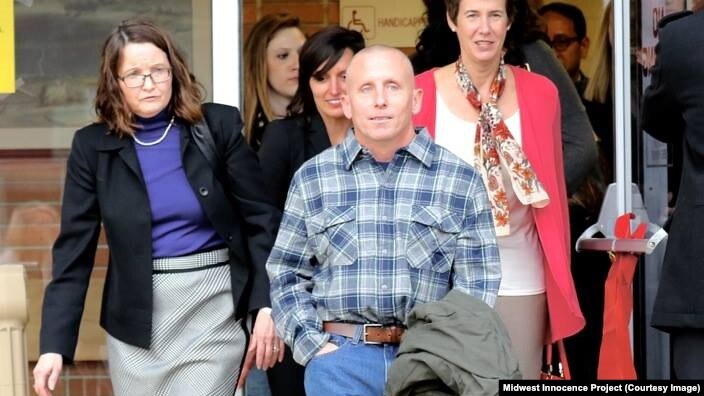
Floyd Bledsoe walked out of prison last December after 16 years in jail.
Bledsoe was freed after government lawyers in Kansas decided that a court’s 2000 ruling against him was a mistake. The court found him guilty of killing his sister-in-law.
The U.S. National Registry of Exonerations says Bledsoe was one of 149 prisoners cleared of criminal charges last year. That is the largest number of exonerations ever, it reported this week. The registry is part of the University of Michigan Law School.
“There is a growing awareness that false convictions are a substantial, widespread and tragic problem,” the report said.
More than two-thirds of those cleared last year had been jailed for killings or drug cases, the registry said. Five people were sentenced to death.
Floyd Bledsoe was 23 years old when he was sentenced to life in prison in 2000. The court’s decision was based largely on statements made by his brother, according to the Midwest Innocence Project. The group worked for years to free Bledsoe.
His brother, Tom Bledsoe, took his own life in November 2015. He left a note admitting he did the killing.
Floyd Bledsoe’s lawyers said the note and genetic evidence helped win his release from prison.
After he left jail, Bledsoe, now 39, asked the Kansas Legislature to abolish death sentences.
“We must stop the death penalty today,” he told legislators. “Tomorrow, it might be too late for one person.”
I’m Bruce Alpert.
Chris Hannas reported on this story for VOANews.com. Bruce Alpert adapted this story for Learning English. George Grow was the editor.
We want to hear from you. Write to us in the Comments Section or share your views on our Facebook Page.
Words in This Story
registry – n. a place that keeps records
exoneration – n. to prove that someone is not guilty of a crime
abolish – v. to end or cancel something


